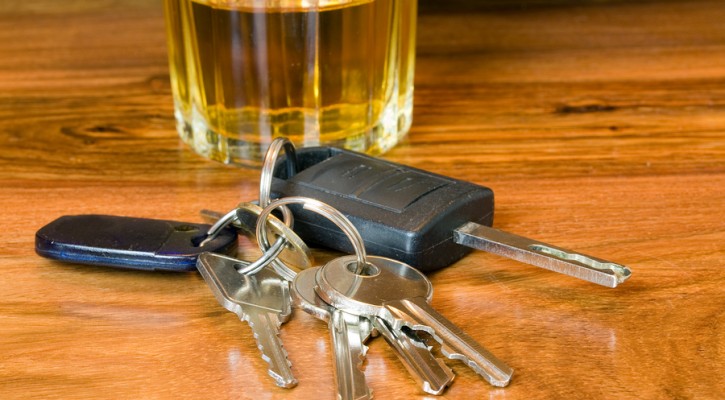Tag Archive: teen safety tips

Prepping for a Safe Prom: Communication
April 22, 2011
“To effectively communicate, we must realize that we are all different in the way we perceive the world and use this understanding as a guide to our communication with others.”
-Tony Robbins
Prom season is fast-approaching and many parents are busy helping their teens gear up for one of the most exciting time in their teen’s life. Often overlooked is the need for these preparations to include frank, specific, and honest discussions with teens about how to stay safe and avoid alcohol or drugs on prom night.
Most of the teens shrug off their parents’ advice, believing the discussion stems from parents not understanding that their teens just want to have a fun carefree night. But in reality, this comes from a place of understanding: these parents had proms in their day, and know how easily things can spiral out of control. It’s usually guidance on helping teens avoid decisions they might regret.
Here are some tips on exactly what to discuss:
- Communicate with other parents; then, talk to your teen about their friends’ parents. Being part of a social group does not guarantee that other parents share the idea of a zero-tolerance policy for alcohol. Some parents even choose to “look the other way” when hosting teen get-togethers, reasoning that at least, the teens are in a “safe” environment. This is illegal in any state. Communicate with these other parents to find out if they know where their teens will be after prom night. Even better, if the teens plan to spend time in another teen’s home, find out if the parents are willing to chaperone. Communicate the importance of accounting and locking up alcohol in their homes. When communicating with your teen, make sure that they know that it’s always alright to say “no.” Ask if they will be riding with teens whose parents also have a zero-tolerance policy for alcohol.
- Come up with a safety code. This could be something a teen may text their parent if they are in an uncomfortable situation, and they need an exit. Something like a code to signal, “get me out of here!” On your end, make sure that your teen knows that you will be discrete upon receiving this code. This could also be something that a teen can do to “check in” with their parents. Maybe texting something like, “dinner was awesome!” could mean that the teen has arrived at an after-prom destination safely.
- Discuss the teen’s planned itinerary for the evening, and require the teen to inform you of any changes. Make teens feel they could trust you not to bug them on prom night, if they promise to keep their end of the bargain by checking in and informing you of any changes in the plan.
Doing so will hopefully make prom night a “night to remember,” instead of being “the night when my mom bugged me all night, until I got home.” Pre-plan, communicate and have fun!

Preventing Underage Drinking and Driving
November 22, 2010
Underage drinking should and does pose concern for parents. Combine drinking with teens who are receiving their learner’s permits or full operators license and you have a recipe for disaster.
For parents and guardians, it will be up to them to make sure that they set the parameters and guidelines to keep their teens safe at all times. But doing so without imposing too much control and giving away too much freedom is essential. Otherwise, teens may make the wrong choices when faced with decisions, they may soon regret.
So what can be done? What can be done to help a teen from getting into preventable bad situations?
There are a few steps parents can take, including:
Get to know the parents of the teen’s friends – Acquaint yourself with the parents of your teen’s friends. Make sure you are on the same wavelength when it comes to what your expectations and parameters are for your teen. Also, treating your teen’s friends with respect or as if they are family will make them think twice before trying something irresponsible. If another parent isn’t too concerned about underage drinking, put out facts. Never argue, instead, share your concerns and the reason you have them, along with the facts and statistics on underage drinking and how it affects the teenage brain. Once they understand the science and statistics, hopefully they will change their minds.
Hide/Lock up the alcohol – Remember, out of sight, out of mind. Don’t make it easy for them to find alcohol and be irresponsible. Ask the parents of your teen’s friends to do the same. Homeowners and other adults can be held liable for what occurs in their home whether they were present or not. Be prudent and not an enabler for reckless teen behavior.
Be the example for them to follow – Be consistent in your message. Never break the rules you make or take part in illegal, unhealthy or dangerous substances or activities. Your actions are the most powerful message to your teen of what is acceptable in your family.
Limit teen driving times and vehicle access – Create and follow a parent-teen contract. Give them limits as to when they can drive a vehicle and how often they can use it. Check in often with your teen. Be sure you know how to reach them. Know where they’re going and ask whether anyone will have alcohol and if adults will be present.
Support the law – Most of the underage drinking laws have made bars and liquor establishments responsible for whatever damages an underage customer might do or incur. They are also likely to have their licenses for selling revoked, if proven to be selling to minors or someone with fake ids. Law enforcement is also cracking down on the makers of fake ids, and violators are given harsh penalties if proven guilty.
Install an anti-distracted driving mobile application – Most of these apps are designed to combat distracted driving, but they can also be used to set safe driving zones, and can alert you if a teen is going over a certain pre-approved point, like, say, a bar or known trouble area. It could also help prevent your teen from getting into a distracted driving crash.
Talk to your teen – Have a straight-up conversation about the effects of drinking and the dangers of drinking and driving. Make sure they understand the penalties, how it reflects on their legal and driving records and how that might affect them in the future. Tell them of your family’s history of alcohol and drug use, since there is a genetic predisposition towards risk of addiction. Be alert and ready to talk with your teen, when they come in at night. Ask them about how their evening went and be prepared to tackle what they share with you. Having an open conversation and understanding with teens can often do wonders for both the teen’s safety and their relationship with their parents.
Recognize and praise them when they have been responsible and demonstrated good judgment. Together with other concerned parents, many crashes that happen during the teenage years can be prevented. Be concerned and vigilant, but not overprotective. Teen drivers may seem like they are maturing to adulthood, but they are not quite there. Balancing expectations with responsibility and implementing precautions, will help to avoid the dangers of underage drinking and drinking and driving.
Learn more about Technology to Prevent Drunk Driving at the National Safety Commission.

Alcohol Access and Your Teen – Trust but Verify
March 5, 2009
Your teenage daughter is spending the night at her friend Mary’s house. Mary’s mother seems to be a responsible, law-abiding adult. You’ve met her several times and there is no reason for you to think anything would go wrong. Mary’s dad is involved in charitable organizations. Still, you hesitate – but then think, why not?
The sleepover at Mary’s house seems perfectly innocent. Your daughter and her friend get good grades in school. They haven’t given you any real reason not to trust them. They are good kids. You’ve had the “choices equal consequences” talk with your daughter. And you have to trust your teen sometime, right? You have to let go.
You are trying to be reasonable.
For many parents, this is where the conflict begins. It’s difficult to decide when to hold back and when to let go. But you can’t let your guard down, because teenagers are vulnerable to temptation and peer pressure every day. What happens when…?
Mary’s parents are busy fulfilling their social and community obligations and aren’t paying attention to what your daughter and Mary are doing. They aren’t home, or they have friends visiting, or they are just weary from work, and their guard is down. Or perhaps they wear rose-colored glasses when it comes to Mary and believe that close supervision of the girls isn’t necessary because she would never betray their trust.
The teens head out to a party at John’s house. Maybe they said they were going to the movies, bowling, or just to hang out with John. John’s dad is a “cool” parent. He understands teenagers, likes to have people around and wants to know what goes on with his kids. John’s dad is an involved parent. He is teaching his son to be responsible. He wants John to drink in moderation and to be a responsible drinker. He reasons that John is going to drink alcohol anyway, so why not teach him how to do it responsibly?
So John’s dad buys beer for the party. Not too much, and he sets limits, cautioning John that each teen should have no more than two beers. He stays home to monitor the situation. Everything seems to be going just fine.
But John’s father didn’t consider the following:
- Early alcohol use, independent of other risk factors, strongly predicts the development of alcohol dependence.
- Of all people who ever meet the diagnostic criteria for alcohol dependence in their lifetime, nearly half do so by age 21 and two-thirds by age 25.
- People who reported starting to drink before the age of 15 were four times more likely to also report meeting the criteria for alcohol dependence at some point in their lives (National Institute on Alcohol Abuse and Alcoholism, 2009).
- Compared to youth who wait until they are 21, youth who drink before age 15 are 12 times more likely to be unintentionally injured while under the influence of alcohol, seven times more likely to be in a motor vehicle crash after drinking, and 10 times more likely to get in a physical fight after drinking (National Research Council and Institute of Medicine, 2004).
- Due to differences between the adult brain and the brain of the maturing adolescent, many young drinkers:
- Are able to consume much larger amounts of alcohol than adults before experiencing the negative consequences of drinking, such as drowsiness, lack of coordination, and withdrawal/hangover effects.
- Are particularly sensitive to the positive effects of drinking, such as feeling more at ease in social situations; young people may drink more than adults because of these positive social experiences (NIAAA, 2009).
- Recent evidence suggests adolescent drinking can inflict permanent damage on the developing brain (National Research Council and Institute of Medicine, 2004).These statistics do not take into account the risk that John’s dad is taking; in many states, he can be held criminally liable for providing alcohol to minors on property he owns, leases, or otherwise controls. Civil liability is always an issue; no state makes it legal for an adult to serve alcohol to someone else’s children. But if you aren’t vigilant, a tragedy could occur before you are even aware of the danger your child faces.Strengthen your resolve. Be your teen’s parent, not a friend. Make sure your teen understands that other adults can’t give them permission to drink alcohol. You’ve already said no, and no one else’s parent can overrule you.
Talk to, and listen to, your teen. Maintain an ongoing, open dialogue about underage drinking and the risks involved. Create a code word so that if your teen needs to be picked up early, you’ll do so with no questions asked until the following day, when you are both calm enough to discuss the situation sensibly. Let your teen know that you will not approve any outing without sufficient notice so you can speak to the hosting parent first.
When your teen spends the night at a friend’s house or goes to a party, call the hosting parent to find out the details. Volunteer to chaperone and provide transportation. Make sure the hosting parent shares your concerns about the availability of alcohol and that none will be permitted. Ask how much supervision will be provided.
Limit the amount of time your teen is away from home. Make sure you are awake and alert when the teen returns. Greet your teen with a kiss and a hug so you can observe your child’s physical, mental, and emotional condition.
It’s tempting for parents to relax their vigilance once their children become teenagers. After all, the teens will soon be on their own and beyond their parents’ control. But the teen years are a critical part of your children’s development, and the decisions they make could affect the rest of their lives. This is not the time to let down your guard.
